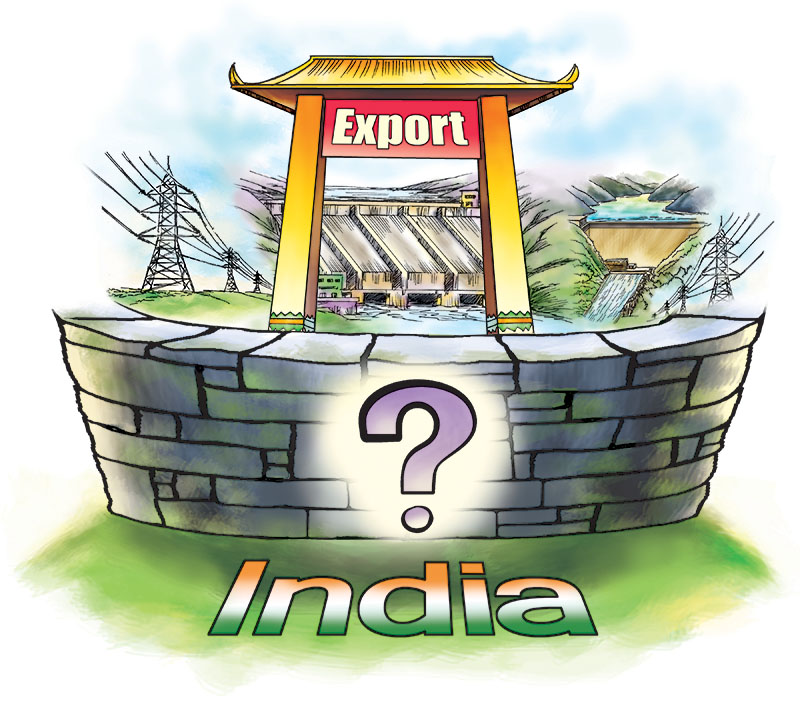Nepal-India energy talks tomorrow
Kathmandu, December 24
As per an earlier agreement, the meeting of the Power Exchange Committee of Nepal and India will be held in New Delhi on Wednesday. Nepali government officials will be travelling to India for the purpose on Tuesday where talks on energy banking and cross-border transmission lines, among others, have been scheduled.
Officials from the Ministry of Energy, Water Resources and Irrigation (MoEWRI) and Nepal Electricity Authority (NEA) will be travelling to the southern neighbour for the talks.
Speaking at a press conference in the Capital today, Minister for Energy, Water Resources and Irrigation Barsha Man Pun, informed that Nepal will hold talks on power banking with the Indian Ministry of Power and Central Electricity Authority (CEA). He said that discussions will also be held on the construction modality of the 400 kVA Butwal-Gorakhpur cross-border transmission line, among others.
Earlier, the government had proposed to the Indian government to build the aforementioned cross-border transmission line through grant, but the Indian government has refused to build the entire project. The Indian government has said they will only build structures of the project that fall in their territory.
Kul Man Ghising, managing director of NEA, will be leading the Nepali team. “We will work towards laying the foundation on energy banking and other power related issues and then after the Nepal-India energy secretary-level talks, which is known as joint steering committee, will finalise the discussed issues.”
On July 7, NEA and CEA of India had agreed to start energy banking by 2019-20. During a meeting of Nepal-India Power Exchange Committee in New Delhi, on July 5 and 6, Nepal and India had agreed to the concept of energy banking.
The energy banking concept means that when there is surplus energy in one country then electricity will be exported to the other country and vice-versa. If the quantum of energy exchanged is equal then there will be no charges levied. However, if one country exports more electricity to the other then the importing country will have to pay for the additional quantum of electricity.
At that time both the governments had agreed to frame a modality and guideline on energy banking. According to NEA, the CEA has finalised the draft of modality and guidelines on energy banking and the committee will discuss on the draft in the meeting.






